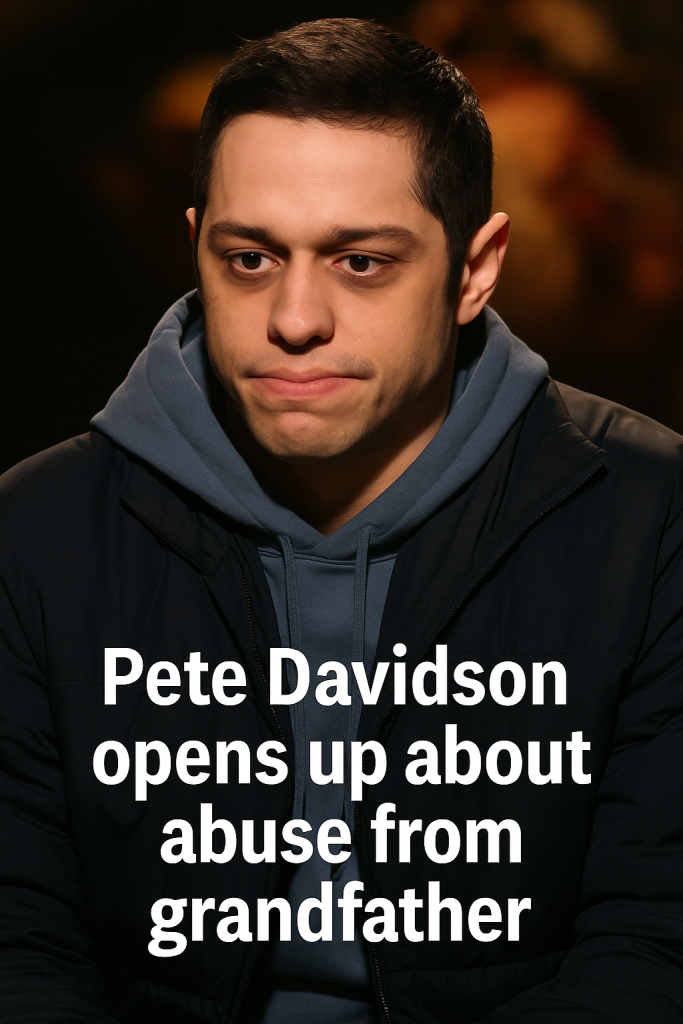In a startling and deeply personal revelation, comedian and actor Pete Davidson has opened up about the abusive relationship he endured with his grandfather, shocking fans and sparking widespread conversation about trauma and family pain. Davidson’s candid remarks, delivered during a recent interview, included the dramatic admission that he is “thrilled” to see his grandfather approaching the end of his life — and even expressed a dark wish for him to “die slow.”
This stark confession provides a raw glimpse into the complex emotions Davidson has wrestled with over years of familial abuse. While often known for his sharp wit and vulnerability in the public eye, this revelation marks one of his most intimate and distressing disclosures to date.
Understanding the Backdrop
Davidson, 30, has previously discussed his turbulent family life, citing his father’s death as a formative and painful event. However, his recent comments about his grandfather have brought a new level of transparency regarding the darker aspects of his upbringing. In the interview, he revealed that his grandfather was a source of physical and emotional abuse during his youth, leaving scars that have clearly influenced his worldview and mental health.
“It’s been a heavy thing to live with,” Davidson said, referring to the abuse. “I’m genuinely thrilled that he’s nearing the end because of what he put me through. And yeah, part of me hopes he dies slow, so he knows the pain he caused me.”
The Emotional Toll and Public Reaction
Davidson’s raw admission highlights the lingering impacts of familial abuse, emphasizing that healing can often be complicated by ongoing emotions such as anger, resentment, and a desire for justice. Fans and mental health advocates alike have praised his courage in speaking out, noting that his openness helps to destigmatize discussions around abuse and trauma.
“It takes immense bravery to share something so painful,” commented a mental health expert following the interview. “Davidson’s honesty sheds light on how abuse can shape a person’s life and underscores the importance of support and therapy.”
Social media followers responded with a mix of support and empathy, many expressing their hope that Davidson continues to find peace and healing despite the scars left by his past.
Looking Forward
Despite the pain, Davidson’s willingness to confront his past publicly could signal a step toward reclaiming control over his narrative and his life. In recent years, he has become an advocate for mental health awareness, frequently discussing his struggles with depression and borderline personality disorder, encouraging others to seek help and speak openly about their experiences.
As Davidson continues to build his career and personal life, fans are hopeful that these revelations will not only provide catharsis for him but also inspire others facing similar familial challenges to find strength and healing.
Ultimately, Pete Davidson’s story serves as a sobering reminder of the hidden battles many endure and the complex emotions tied to those who cause us harm — even within our own families.



